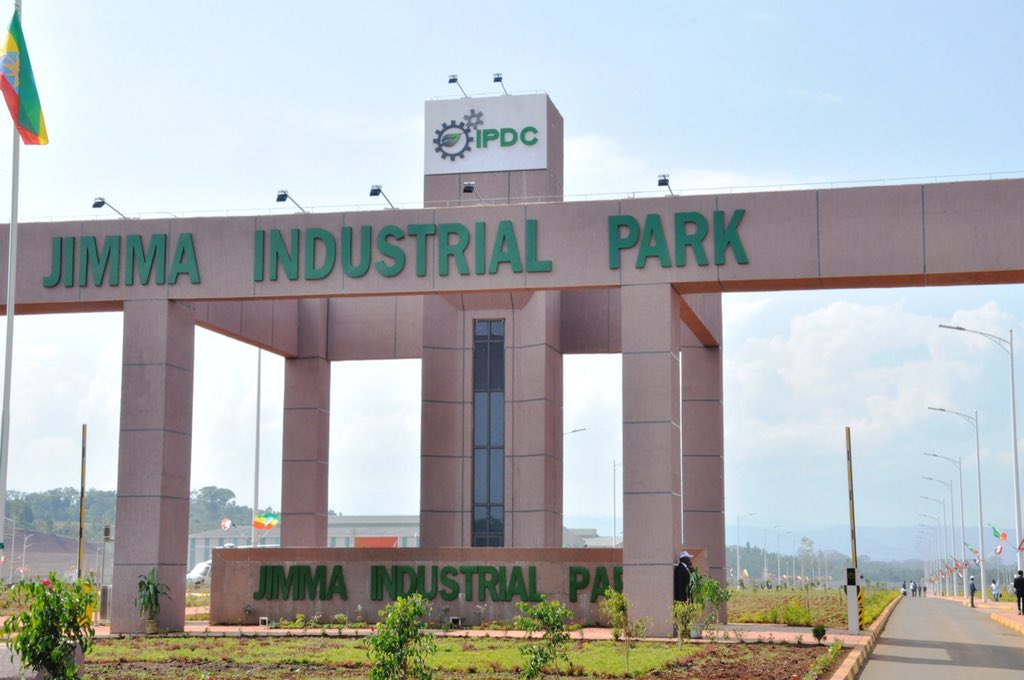
The Industrial Parks Development Corporation (IPDC) has received 10 thermal cameras that will be used to monitor the body temperature of all the staff entering the seven operational industrial parks.
The thermal cameras are worth a total of 104,000 dollars and were donated by the Department for International Development (DFID). The cameras will be installed as one of the precautionary steps being taken to contain the spread of the Novel Coronavirus (COVID-19). The thermal cameras will supplement the previously used infrared thermometers.
The selling point for thermal cameras is that they scan multiple people at a time and have sped up the process at the checkpoints where infrared thermometers had been previously used to inspect thousands of employees, one at a time. The infrared thermometers are handheld devices that detect temperature by measuring the heat radiating from an individual.
The new cameras are placed at the gates where they will detect people with elevated body temperatures. Employees that have an abnormal temperature will then be taken to a health centre where follow-up testing can be completed.
So far, Hawassa, Bole Lemi and Adama industrial parks have started using the thermal cameras, and the remaining parks will follow, according to Derebe Debele, communications manager at the Corporation.
Hawassa Industrial Park, which has the highest number of sheds and 35,000 employees, was the first to receive a thermal camera and has been using it for three weeks.
The installation and testing of the camera took a week, according to Belay Hailemichael, manager at Hawassa Industrial Park from the Ethiopian Investment Commission.
"We tested it first in our office spaces and then at the main gate where it detects five to six people at a time," said Belay.
The Hawassa Industrial Park will be getting a second camera soon since the capacity of the Park requires more than one. Hawassa Industrial Park has not had an incident yet. Adama Industrial Park detected two individuals with abnormal temperatures, but they were later found to have common colds.
The main challenges to safety protocols has been the non-compliance of the employees, according to Belay.
"There's a tendency to be careless; there were complaints about wearing face masks with some saying they are uncomfortable or some simply not wanting to wear them," he said, "so we have had to tell our employees that work will not be possible without the masks."
Adama Industrial Park, which has 4,000 employees, has been using the thermal camera for over two weeks. With this new addition, it has increased its checkpoints to two - one at the main gate and the other at the company entrance.
Bole-Lemi Industrial Park, with 18,500 employees, is waiting to receive its second thermal camera.
"We'll be doing an awareness-raising programme around the parts of the city where most of our employees live as well," said the Park's manager, Tinsae Yimam.
The employees need to take caution not only at work but also where they live, according to Tinsae, who says that the Park is preparing 100,000 educational brochures.
Following the new laws of transportation during the state of emergency, the parks have also decreased the capacity of their buses by half. This measure, while ensuring more distance between employees, has resulted in major transportation shortages. The parks are giving priority to employees who live very far away and giving transportation stipends to others.
Yet the issue remains frustrating to many workers, including a 21-year-old employee working in one of the textile companies in Bole-Lemi Industrial Park.
"A lot of us are walking almost an hour to work, and the roads are very muddy and difficult in this weather," she said. "The stipend that was given to us doesn't cover our costs, but we can't be picky at this time."
The Hawassa Industrial Park is just getting back to the track after half of its companies suspended operations for several weeks due to the virus. The Park is working on repurposing the industry to maintain operations and keep its employees.
Maintaining investor confidence at a time when the global supply chain has been severely affected is not something the government will be able to achieve, according to Getachew T. Alemu, an economist and policy consultant.
"Especially when it comes to industrial products, this is the case, as they aren't deemed as essential as food, for instance," he said. "People need to eat before they can dress."
However, repurposing is one good adjustment, according to Getachew.
The government should provide support to cover overhead costs and salaries in cases like this, and coming up with a comprehensive plan that addresses the right people in need of support is very crucial, according to him.
"In addition to this, we need to brace ourselves for a long-lasting economic impact and be prepared," he said.
PUBLISHED ON
May 02,2020 [ VOL
21 , NO
1044]

Fortune News | Feb 08,2020

Fortune News | Jun 01,2019

Commentaries | Dec 14,2024

Radar | Apr 21,2024

Radar | Aug 03,2025

Dec 22 , 2024 . By TIZITA SHEWAFERAW
Charged with transforming colossal state-owned enterprises into modern and competitiv...

Aug 18 , 2024 . By AKSAH ITALO
Although predictable Yonas Zerihun's job in the ride-hailing service is not immune to...

Jul 28 , 2024 . By TIZITA SHEWAFERAW
Unhabitual, perhaps too many, Samuel Gebreyohannes, 38, used to occasionally enjoy a couple of beers at breakfast. However, he recently swit...

Jul 13 , 2024 . By AKSAH ITALO
Investors who rely on tractors, trucks, and field vehicles for commuting, transporting commodities, and f...

Nov 1 , 2025
The National Bank of Ethiopia (NBE) issued a statement two weeks ago that appeared to...

Oct 25 , 2025
The regulatory machinery is on overdrive. In only two years, no fewer than 35 new pro...

Oct 18 , 2025
The political establishment, notably the ruling party and its top brass, has become p...

Oct 11 , 2025
Ladislas Farago, a roving Associated Press (AP) correspondent, arrived in Ethiopia in...